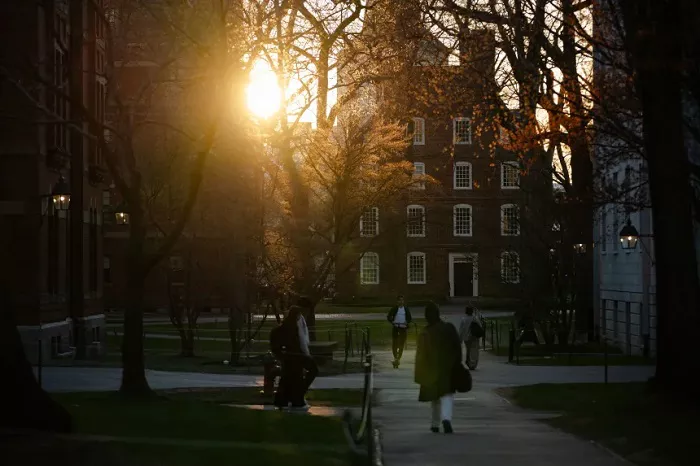Cambridge, Mass. — May 23, 2025 — The U.S. Department of Homeland Security (DHS) has revoked Harvard University’s certification under the Student and Exchange Visitor Program (SEVP), effectively barring the institution from enrolling international students for the upcoming academic year. The decision, announced Thursday, represents a dramatic escalation in the ongoing dispute between the Ivy League university and the Trump administration.
International students account for over a quarter of Harvard’s student body. According to university data, 6,793 international students were enrolled for the 2024–2025 academic year, comprising roughly 27% of total enrollment. In total, Harvard hosts nearly 10,000 international students and scholars from more than 140 countries. The DHS directive not only halts new international enrollments but requires current students on F-1 and J-1 visas to transfer to other SEVP-certified institutions to maintain their immigration status.
Harvard sharply criticized the move, calling it “unlawful” and pledging to support affected students. “This retaliatory action threatens serious harm to the Harvard community and our country, and undermines Harvard’s academic and research mission,” said university spokesperson Jason Newton. Harvard has also signaled that it will challenge the decision in court.
The administration’s action comes amid a freeze of $2.2 billion in federal funds to the university following Harvard’s refusal to comply with White House demands for changes to its international student program. Homeland Security Secretary Kristi Noem contended that Harvard relies heavily on tuition from international students to bolster its $53.2 billion endowment—a claim that underscores the financial stakes for the university.
Legal Uncertainty and Immigration Fallout
The legality of the DHS revocation remains unclear. Legal analysts say the administration may have bypassed established procedures for rescinding SEVP certification. “There are well-established legal processes in place, and it does not appear the administration followed them,” said CNN legal analyst Elliot Williams.
Meanwhile, U.S. District Judge Jeffrey White issued a separate injunction Thursday, blocking the administration from stripping legal status from foreign students nationwide through abrupt SEVIS record cancellations. While that ruling applies to individual cases rather than institutional certifications, it could signal further legal headwinds for the administration.
Attorney Bradley Bruce Banias, who has represented international students in lawsuits over SEVIS terminations, criticized the government’s approach. “ICE continues to prioritize politics over the rule of law, again terrorizing foreign national students,” he said.
Some students may seek to remain in the U.S. on tourist visas while legal challenges unfold, though the viability of this strategy remains uncertain.
Academic and Financial Ramifications
The decision is expected to disrupt ongoing research and jeopardize the university’s global academic standing. Faculty have warned that losing international students could severely impair Harvard’s research capacity. “Many labs will empty out,” one professor told CNN.
Harvard Medical School and the School of Public Health are already facing the consequences of last month’s federal funding freeze, including staff layoffs and canceled research projects.
Beyond the academic implications, the financial blow could be significant. International students, who are typically ineligible for U.S. federal financial aid, often pay full tuition. While Harvard’s vast endowment may buffer some impacts, much of it is legally restricted or invested in illiquid assets.
Community and Global Reaction
The decision has drawn fierce condemnation from students, faculty, and international officials. Harvard student body co-president Abdullah Shahid Sial described the move as dehumanizing. “International students represent the best of the best in their countries. Seeing them treated in such a disrespectful manner is heartbreaking,” he said.
Harvard’s chapter of the American Association of University Professors issued a statement denouncing the administration’s “unconstitutional assault” on international students. Australia’s ambassador to the U.S., Kevin Rudd, also voiced concern and offered consular support to affected Australian students.
For prospective international applicants considering a study abroad program in the U.S., this development raises questions about stability and visa reliability. While Harvard remains committed to upholding its global academic mission, the case underscores the evolving legal and political complexities international students face when navigating study abroad guides and opportunities in the United States.
As legal challenges loom, the university and its international community await clarity on whether the policy w


